- Home
- Video Courses
- Certifications
- N10-008: CompTIA Network+ (N10-008) Dumps

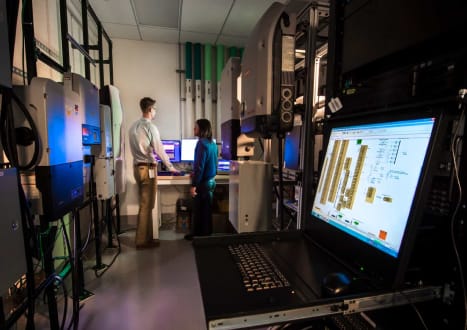
N10-008: CompTIA Network+ (N10-008) Certification Video Training Course
N10-008: CompTIA Network+ (N10-008) Certification Video Training Course includes 211 Lectures which proven in-depth knowledge on all key concepts of the exam. Pass your exam easily and learn everything you need with our N10-008: CompTIA Network+ (N10-008) Certification Training Video Course.
Curriculum for CompTIA N10-008 Certification Video Training Course


















N10-008: CompTIA Network+ (N10-008) Certification Video Training Course Info:
The Complete Course from ExamCollection industry leading experts to help you prepare and provides the full 360 solution for self prep including N10-008: CompTIA Network+ (N10-008) Certification Video Training Course, Practice Test Questions and Answers, Study Guide & Exam Dumps.
CompTIA Network+ N10-008 Training & Certification
Course Overview
The CompTIA Network+ (N10-008) certification stands as one of the most recognized vendor-neutral credentials in the field of networking. It has been carefully developed to provide learners with the knowledge and skills that define a competent networking professional. Unlike certifications that tie learners to a single platform or vendor, Network+ focuses on the universal principles of networking. This ensures that certified individuals can work in diverse environments that might include a mixture of equipment, technologies, and vendors.
This course overview is designed to help prospective learners, training professionals, and IT managers understand the depth and scope of the training program. The goal of this course is not only to prepare candidates for the N10-008 exam but also to equip them with practical skills they can use in real-world networking environments.
At its core, the Network+ course covers fundamental topics such as network architecture, network operations, network security, and troubleshooting. It blends theoretical understanding with practical examples, showing how networking concepts are applied in professional settings. The training also emphasizes problem-solving, critical thinking, and adaptability—qualities that are essential for networking roles where technologies evolve rapidly.
Learners enrolling in this program can expect a balance between foundational topics like OSI and TCP/IP models, as well as advanced subjects including cloud networking, virtualization, and security hardening techniques. The course also integrates new exam objectives introduced in N10-008 that reflect the modern direction of networking, such as the increased emphasis on virtualization, software-defined networking, and emerging security concerns.
The overview also highlights the global relevance of the Network+ certification. Employers worldwide recognize it as a validation of essential networking skills. In many cases, organizations consider Network+ a baseline requirement for technical roles involving network administration, support, or infrastructure management. For professionals at the start of their careers, the certification acts as a stepping stone toward advanced paths like security, cloud, or network engineering.
By the end of this training, participants should feel confident in their ability to design and implement functional networks, configure hardware and software, troubleshoot connectivity problems, and maintain secure network operations. They should also be prepared to sit for the N10-008 exam with the confidence that their knowledge has been aligned with CompTIA’s official objectives.
The Significance of the N10-008 Exam
Understanding the importance of the N10-008 exam is crucial for grasping why this course is structured the way it is. Each revision of the Network+ exam reflects the technological landscape of the IT industry at the time. The N10-008 version introduces concepts that have become increasingly relevant in the past decade, including cloud-based services, wireless networking advancements, and an expanded emphasis on security.
Networking is no longer confined to static office environments where physical cabling and hardware define every aspect of connectivity. Today, professionals must understand hybrid environments that combine physical infrastructures with cloud-based platforms. They must troubleshoot across virtualized resources and anticipate new types of threats. By aligning with the N10-008 objectives, this course provides learners with a modern perspective that goes beyond outdated practices and ensures relevance in current and future roles.
What Learners Will Gain
The training aims to impart not only exam knowledge but also practical, job-ready skills. Learners will walk away with a comprehensive understanding of how networks operate, how to manage different devices, how to diagnose performance issues, and how to maintain resilience in complex environments. A major focus is on hands-on applications, which means concepts will be linked to scenarios a professional might actually encounter in a workplace.
Another benefit lies in confidence building. Certification exams can be intimidating, particularly for individuals who are relatively new to IT. Through structured learning modules, guided explanations, and exposure to exam-style questioning, this course lowers the barrier to entry and encourages learners to approach the exam as a logical extension of their training rather than an obstacle.
The course also helps learners develop transferable skills. The networking knowledge gained is applicable across roles, industries, and regions. From small startups that require versatile IT professionals to large enterprises that demand specialized expertise, the skills validated by Network+ carry weight in virtually every environment.
Modules
This course is divided into modules that align with CompTIA’s exam objectives. Each module is crafted to provide depth, context, and clarity. The modules are progressive, building from fundamental networking concepts to advanced troubleshooting and security practices.
Introduction to Networking Concepts
The first module begins with the foundations of networking. Learners will explore the purpose of networks, the distinctions between LANs, WANs, and other network types, and the importance of protocols. The OSI model and TCP/IP stack will be thoroughly explained, not just as abstract theories but as frameworks for understanding how devices communicate. Real-world analogies and examples help illustrate why these models are essential for professionals troubleshooting network issues.
Infrastructure and Cabling
Networking infrastructure involves the hardware and physical mediums that allow data to travel from one point to another. This module introduces learners to cabling standards, connectors, and the properties of copper and fiber optic cables. It also covers wireless technologies, discussing frequency ranges, standards like Wi-Fi 6, and considerations such as interference and security. Switches, routers, firewalls, and access points are introduced as the backbone of physical networking infrastructures.
IP Addressing and Routing
A significant portion of the course is dedicated to understanding IP addressing, subnetting, and routing principles. Learners will explore IPv4 and IPv6 addressing schemes, address assignment methods, and subnetting strategies. The module also introduces routing protocols and concepts such as static routing, dynamic routing, and default gateways. Examples demonstrate how addressing decisions affect network performance and connectivity.
Network Operations
Beyond setting up networks, professionals must understand how to operate and manage them effectively. This module focuses on monitoring, documentation, and business continuity practices. Learners will study network diagrams, logging tools, and metrics for performance monitoring. Concepts such as high availability, redundancy, and disaster recovery are explained to ensure professionals understand how to keep networks resilient and operational.
Network Security
Security permeates every aspect of modern networking, and this module emphasizes its importance. Learners are introduced to threats such as denial-of-service attacks, phishing, and insider threats. They will study defense mechanisms including firewalls, intrusion detection systems, access control, and authentication techniques. Encryption methods and VPN technologies are also covered to prepare professionals for the role security plays in every networking decision.
Troubleshooting and Tools
One of the hallmarks of a competent networking professional is the ability to diagnose and resolve issues. This module equips learners with troubleshooting methodologies and introduces tools such as ping, traceroute, and packet analyzers. The structured approach to troubleshooting—identifying the problem, establishing theories, testing solutions, and verifying results—ensures learners develop critical thinking and systematic problem-solving skills.
Emerging Technologies
The final module explores trends shaping the future of networking. Cloud services, virtualization, and software-defined networking are key areas of focus. Learners will understand how cloud networking changes the traditional networking model and how virtualization introduces flexibility and scalability. The discussion also covers automation, scripting, and concepts such as intent-based networking, showing how professionals must adapt to environments that increasingly blend manual configuration with automated orchestration.
How the Modules Connect
Each module is interconnected, ensuring learners do not view networking as a set of isolated tasks. For instance, troubleshooting requires a solid understanding of IP addressing and protocols, while security decisions often depend on the design of infrastructure and operational practices. By weaving these connections throughout the training, learners develop a holistic perspective on networking.
Understanding Course Requirements
Every structured training program comes with a set of requirements that define what learners need to succeed. For the CompTIA Network+ (N10-008) certification course, requirements are not meant to intimidate but rather to provide guidance and ensure that learners start their journey with realistic expectations. These requirements cover technical knowledge, personal skills, resources, and mindset. By clarifying what is expected, this section gives learners a roadmap for preparation before they dive into the deeper aspects of networking.
The requirements of this course can be divided into three broad categories. First, there are baseline technical requirements such as familiarity with computers, operating systems, and basic networking concepts. Second, there are resource requirements, which include access to learning materials, study environments, and in some cases, lab setups. Third, there are personal requirements, such as time commitment, motivation, and problem-solving mindset. Each of these categories is essential for transforming a learner into a confident professional ready to achieve certification.
Academic and Technical Prerequisites
One of the strengths of the Network+ certification is that it is accessible to individuals at different stages of their career. While CompTIA does not enforce strict prerequisites, there are academic and technical skills that significantly improve the learner’s ability to engage with the course content.
At a basic level, learners are expected to understand how computers function. This includes knowledge of operating systems, file management, and application usage. Familiarity with both Windows and Linux environments is beneficial, as networking often involves devices running different operating systems. A learner who understands how to configure a network adapter in Windows or how to navigate Linux command-line tools will have a smoother experience with networking labs and demonstrations.
Many learners who pursue Network+ have already acquired the CompTIA A+ certification or have equivalent knowledge. While A+ is not mandatory, it provides a foundation in hardware, operating systems, and troubleshooting that makes the transition to networking concepts more manageable. Those without A+ can still succeed in Network+, but they may need to dedicate extra time to grasping foundational topics such as binary numbers, ports, or basic system configurations.
Additionally, mathematical literacy is an unspoken prerequisite. Networking concepts such as subnetting rely on binary arithmetic and logical reasoning. While advanced mathematics is not required, learners should feel comfortable with addition, subtraction, and basic binary concepts. The ability to think logically and systematically is more important than memorizing formulas.
Professional Experience
Although Network+ is designed to be an entry-level networking certification, CompTIA recommends that learners have between nine months and a year of experience in IT before attempting the exam. This recommendation is rooted in the understanding that real-world exposure helps learners contextualize the topics presented in the course.
Experience may include working as a help desk technician, technical support associate, or junior IT staff member. Such roles provide familiarity with troubleshooting connectivity issues, configuring devices, and supporting users—all of which align with the objectives of Network+. However, learners without professional experience can still succeed by compensating with dedicated lab practice and thorough study. The course itself is designed to provide simulated exposure to networking environments, but those with practical background will find the learning curve less steep.
Technology and Resources
Another essential requirement is access to technology and resources. Networking is a hands-on discipline, and while theoretical knowledge is critical, the ability to experiment with devices and configurations enhances understanding.
Learners will benefit from access to a personal computer with sufficient processing power to run virtualization software. Virtual labs can simulate routers, switches, and network topologies, giving learners a platform to practice without needing to purchase expensive hardware. Tools such as Oracle VirtualBox or VMware Workstation Player provide accessible environments for building small-scale virtual networks.
A stable internet connection is also necessary. Not only does it allow access to course materials, but it also supports the downloading of tools, updates, and resources. Additionally, networking often involves remote troubleshooting and online resources, making internet literacy itself a practical requirement.
Some learners may choose to invest in physical networking equipment, such as entry-level routers, switches, and cables. While not mandatory, such equipment provides tactile learning experiences that complement the virtual environment. Feeling the weight of an Ethernet cable, inserting connectors, and observing status lights on switches helps bridge the gap between abstract knowledge and physical implementation.
Time Commitment
Perhaps the most overlooked but critical requirement is the commitment of time. Networking is not a skill mastered overnight. The Network+ course, structured to align with the N10-008 objectives, demands consistent study sessions, hands-on practice, and review.
Learners should be prepared to dedicate several hours each week to study. For individuals working full-time, this often means balancing professional responsibilities with evening or weekend study sessions. The flexibility of this course design ensures that learners can progress at their own pace, but discipline is necessary to prevent prolonged gaps that can weaken retention.
Consistency is more valuable than intensity. A learner who dedicates one hour per day over several months is likely to be more successful than one who crams for long hours over a few days. The course requires a steady rhythm of reading, practice, and reinforcement. Learners must view networking as a skill developed over time, not a subject memorized for an exam.
The Learning Mindset
Beyond technical knowledge and time, the most important requirement is mindset. Networking concepts can be abstract and at times overwhelming. Protocols, addressing schemes, and security configurations may seem like a new language. Learners must cultivate patience, curiosity, and resilience.
A successful learner embraces problem-solving as an opportunity rather than a challenge. Instead of becoming frustrated when a configuration fails, they analyze the issue, test hypotheses, and adjust approaches. This investigative mindset mirrors the expectations of real-world networking roles where professionals troubleshoot under pressure and seek solutions through persistence.
Curiosity is another vital attribute. Networking is not just about passing an exam but about developing a deeper understanding of how devices communicate. Learners who explore beyond the syllabus—experimenting with configurations, reading about emerging technologies, and testing tools—emerge not only as certified professionals but as genuinely skilled practitioners.
Language and Communication Skills
Networking professionals are expected to communicate effectively, both with colleagues and with end users. While technical knowledge is the backbone of the course, learners must also possess sufficient language and communication skills to interpret questions, write explanations, and engage with peers.
This requirement extends to exam preparation, where reading comprehension is critical. The Network+ exam often presents scenario-based questions that require careful reading and analysis. Misinterpreting a single phrase can lead to incorrect answers. Therefore, learners should practice not only technical study but also critical reading.
In a professional setting, communication skills are equally important. A networking specialist may need to explain technical issues to non-technical stakeholders. The ability to translate jargon into accessible language ensures smoother collaboration and greater effectiveness. This course encourages learners to refine these skills by reflecting on explanations and practicing how they would communicate concepts in real-world environments.
Financial Investment
Another requirement that learners must consider is the financial investment. Training materials, exam vouchers, and optional resources like lab equipment come at a cost. The Network+ certification is an investment in professional development, and learners must be prepared to allocate funds responsibly.
The cost of the exam itself varies by region but typically represents a significant financial commitment. Additionally, learners may choose to invest in study guides, video courses, or practice tests. While these are optional, they often accelerate learning and provide structured reinforcement of concepts.
Budgeting for certification is therefore part of the requirements. Learners should view the financial commitment as an investment that pays long-term dividends in employability, career advancement, and salary potential. The upfront cost may seem daunting, but it reflects the value of acquiring globally recognized skills.
Support Systems
An often-overlooked requirement for success in this course is the presence of support systems. Networking can be complex, and learners benefit from mentorship, peer discussions, and access to instructors or communities.
Learners are encouraged to seek communities, whether in the form of study groups, online forums, or professional associations. Engaging with peers allows for the exchange of ideas, clarification of doubts, and exposure to different perspectives. Many learners find that explaining concepts to others reinforces their own understanding.
Mentorship is equally valuable. Having an experienced professional provide guidance can accelerate the learning process and offer insights into practical applications of networking skills. This support system ensures that learners do not feel isolated and have resources to turn to when challenges arise.
Course Description
The CompTIA Network+ (N10-008) training course is designed as a comprehensive pathway for learners who want to establish a solid foundation in networking. It blends theoretical knowledge with practical skills, ensuring that participants can not only pass the certification exam but also excel in real-world IT environments. Unlike vendor-specific certifications that restrict learners to one product or ecosystem, Network+ offers a vendor-neutral perspective, allowing professionals to adapt to a wide variety of network infrastructures.
This course covers every domain outlined by the N10-008 exam objectives, including networking concepts, infrastructure, operations, security, and troubleshooting. Each domain is approached systematically, beginning with fundamental principles before progressing to advanced applications. The intention is to create a layered learning experience where learners build upon earlier modules and gradually develop mastery.
A distinctive feature of this training program is its balance of theory and application. Learners are not simply presented with abstract models or protocols but are guided through examples, demonstrations, and scenarios that reflect real workplace situations. From understanding how switches and routers interact to configuring secure wireless connections, the course places knowledge in practical contexts.
The Network+ course is also aligned with industry standards and practices. Networking is a dynamic discipline that evolves with technology, and this course reflects those changes by including topics such as virtualization, cloud networking, software-defined technologies, and emerging security concerns. In doing so, the course does not merely prepare learners for an exam but equips them for a career in IT that will demand adaptability and continuous growth.
By completing this training, learners will gain the confidence to design, implement, manage, and troubleshoot networks of varying sizes and complexities. They will also be equipped with the professional vocabulary and conceptual clarity to communicate effectively with colleagues, managers, and vendors.
The Learning Journey
The Network+ training journey begins with exploration of foundational concepts. Learners are introduced to the importance of networking in modern society and the ways in which data communication powers everything from small businesses to global enterprises. Early modules emphasize the OSI model, protocols, and network topologies, ensuring that learners understand the conceptual frameworks behind every decision a networking professional makes.
As the course progresses, learners are guided into more technical domains such as IP addressing, routing protocols, and switching technologies. Practical examples demonstrate how theoretical principles are applied to configure devices, allocate addresses, and ensure connectivity across networks. Hands-on exercises, whether virtual or physical, encourage learners to move from passive reading to active experimentation.
The course then delves into operations and security, two areas of immense importance in modern IT environments. Learners study monitoring tools, logs, and best practices for maintaining network health. Security concepts such as authentication, encryption, and firewall configuration are presented not only as isolated tools but as integrated components of a holistic network defense strategy.
Finally, learners engage with troubleshooting methodologies and emerging technologies. They are encouraged to think like problem-solvers, applying systematic approaches to diagnose and resolve network issues. At the same time, they gain exposure to the future of networking, including trends in cloud services, virtualization, and automation. This dual emphasis on troubleshooting and future-proofing ensures that graduates of the course are capable of thriving in today’s roles while preparing for tomorrow’s challenges.
Structure of the Course
The course is structured into modules, each focused on a specific domain of networking. These modules are designed to be sequential but also modular in nature, allowing learners to revisit areas where they need reinforcement. Each module incorporates explanations, scenarios, and practice opportunities that enable learners to solidify their understanding.
The structure reflects CompTIA’s exam objectives, ensuring that participants are always aligned with certification requirements. For instance, when studying IP addressing, learners are exposed to both theoretical subnetting exercises and real-life configuration examples. When exploring network operations, they are shown how to interpret logs and respond to alerts. This structured approach ensures that learners do not simply memorize facts but internalize concepts that are transferable to their professional environments.
The course also integrates assessment checkpoints, encouraging learners to evaluate their progress. These checkpoints help learners identify strengths and weaknesses, providing opportunities for targeted review before advancing to more complex material.
Who This Course Is For
The CompTIA Network+ (N10-008) training course is designed for a broad audience of learners. Its flexibility and vendor-neutral nature make it suitable for individuals at different stages of their careers, from newcomers entering the IT field to professionals seeking to validate or expand their knowledge.
Aspiring IT Professionals
One of the primary audiences for this course is individuals who are new to IT and aspire to establish a career in networking or related fields. For such learners, Network+ serves as an entry point, offering foundational knowledge that paves the way for more advanced certifications and roles. The course assumes no advanced prior experience, making it accessible to motivated learners who are willing to dedicate time and effort.
Aspiring IT professionals benefit from the course’s gradual approach, beginning with simple networking concepts and progressing to advanced subjects. This progression ensures that even those without formal technical backgrounds can build competence. For learners coming from non-technical careers, the course provides an opportunity to transition into the growing field of IT.
Help Desk and Support Technicians
Another group of learners who find this course highly beneficial are help desk and technical support technicians. These professionals are often the first point of contact for network-related issues within organizations. By pursuing Network+, they gain the knowledge and confidence to go beyond basic troubleshooting and address issues at the network level.
For support technicians, the course provides practical insights into diagnosing connectivity problems, assisting users with configuration, and escalating issues appropriately. This expanded skill set not only improves their effectiveness in their current roles but also positions them for advancement into network administration or engineering roles.
Network Administrators in Training
Individuals who aspire to become network administrators also represent a key audience for this course. Network administrators are responsible for designing, implementing, and managing networks, and the Network+ certification validates the skills required for these responsibilities.
For such learners, the course provides a comprehensive foundation in infrastructure, addressing, and security. It ensures they can handle the daily tasks of network management while preparing them for specialized certifications such as Cisco’s CCNA or CompTIA’s Security+. By completing Network+, learners establish themselves as professionals ready to assume greater responsibilities within IT departments.
Career Changers
The course also serves those who are transitioning from other industries into IT. Career changers often bring valuable soft skills such as communication, project management, or customer service, but they lack technical expertise. Network+ provides them with a structured and recognized credential that validates their ability to succeed in technical roles.
For this audience, the course offers a gateway into an industry with abundant opportunities. The vendor-neutral perspective ensures that career changers are not tied to one employer’s technology stack but instead gain knowledge that can be applied broadly across different organizations and industries.
Military and Government Professionals
Network+ is also highly relevant for individuals working in military or government environments. In many regions, it is recognized as meeting requirements for technical roles under frameworks such as the U.S. Department of Defense directive for information assurance. For military personnel transitioning to civilian careers, Network+ provides a credential that bridges their experience with industry-recognized standards.
IT Managers and Supervisors
While the primary audience for Network+ is technical professionals, managers and supervisors in IT also benefit from completing the course. For leaders overseeing network teams, understanding the fundamentals of networking enhances their ability to manage projects, allocate resources, and communicate with technical staff. Although they may not perform configurations themselves, their awareness of networking concepts ensures informed decision-making and effective leadership.
Career Outcomes of the Course
Completing the Network+ course opens pathways to a variety of roles within the IT industry. Graduates are prepared for positions such as network support specialist, help desk technician, systems administrator, and junior network administrator. They also position themselves for advanced certifications and specialized fields such as cybersecurity, cloud architecture, or systems engineering.
The certification acts as both a stepping stone and a milestone. As a stepping stone, it provides the foundation for pursuing higher-level certifications. As a milestone, it validates a core set of skills that employers value in entry-level and mid-level positions. For many professionals, Network+ is the credential that unlocks their first dedicated networking role or secures them advancement in their current organization.
The Global Relevance of the Course
Another dimension of this course description is its global recognition. Networking is a universal discipline, and the vendor-neutral nature of CompTIA certifications ensures that skills gained are applicable worldwide. Whether learners intend to work in local businesses, multinational corporations, or remote environments, the knowledge acquired is transferable.
This global relevance also makes the certification valuable for individuals who may seek opportunities abroad or within international organizations. Employers across industries recognize CompTIA as a trusted authority in IT training, and Network+ carries credibility wherever learners choose to apply their skills.
Student Feedback
Similar CompTIA Video Courses
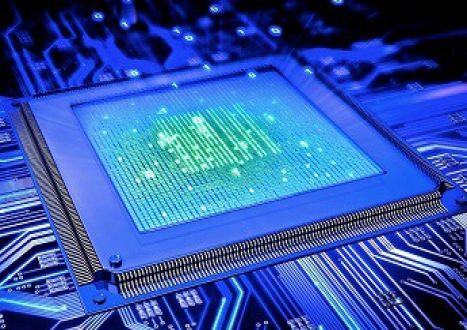


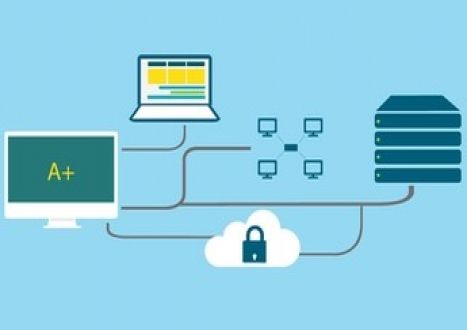





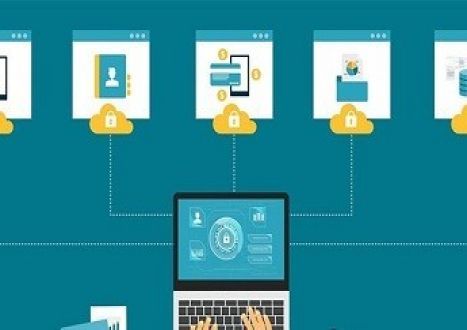
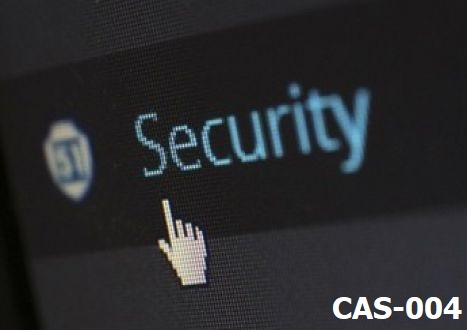

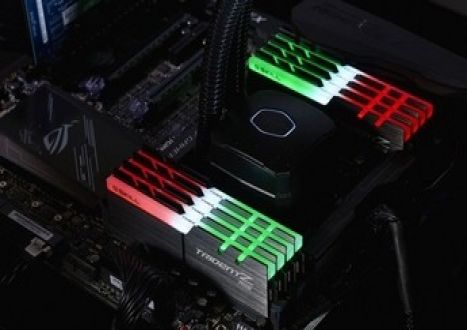




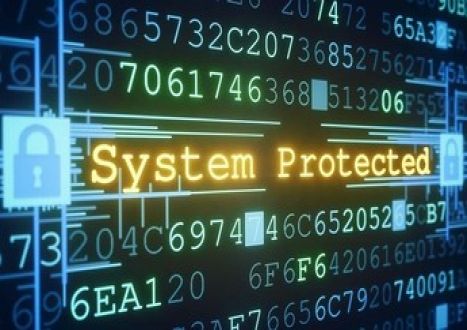





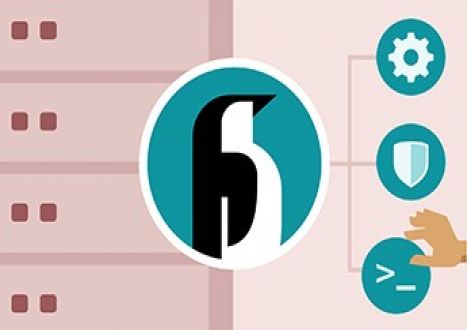






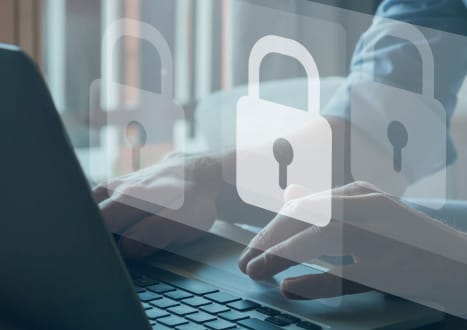

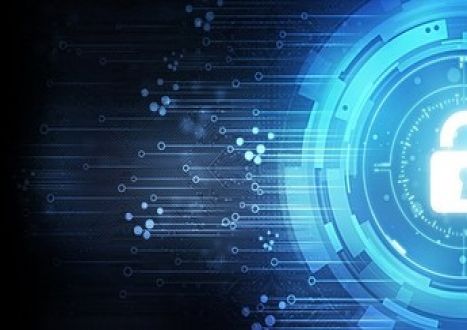








































Only Registered Members Can Download VCE Files or View Training Courses
Please fill out your email address below in order to Download VCE files or view Training Courses. Registration is Free and Easy - you simply need to provide an email address.
- Trusted By 1.2M IT Certification Candidates Every Month
- VCE Files Simulate Real Exam Environment
- Instant Download After Registration.
Log into your ExamCollection Account
Please Log In to download VCE file or view Training Course
Only registered Examcollection.com members can download vce files or view training courses.




